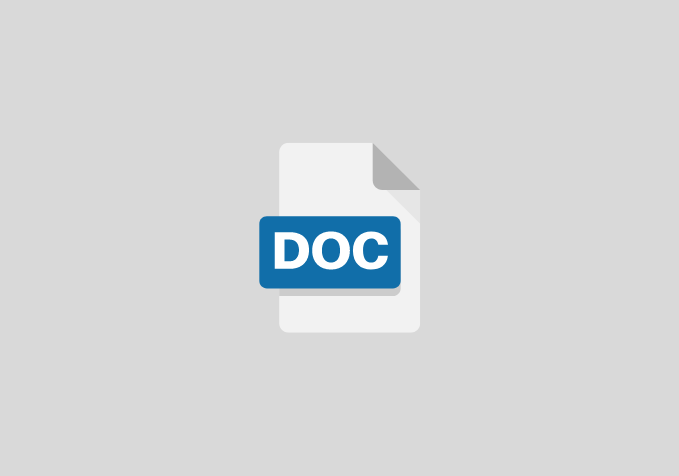A Proposal on Compensation Strategy and Organizational Performance
OBJECTIVE OF THE STUDY
The main objective of the study is to investigate compensation strategy and organizational performance. The specific objectives are;
- To ascertain the effect of overtime on organizational performance in Nigerian Bottling Company,ESEHI NIG. LTD and AVERY NIGERIA LTD
- To ascertain the effect of allowances on organizational performance in Nigerian Bottling Company,ESEHI NIG. LTD and AVERY NIGERIA LTD
- To find out the effect of fringe benefits on organizational performance in Bottling Company, ESEHI NIG. LTD and AVERY NIGERIA LTD
METHODOLOGY
Research Design
The research design adopted in this research work is the survey research design which involves the usage of self-designed questionnaire in the collection of data. Under the survey research design, primary data of this study will be collected from Bottling Company, ESEHI NIG. LTD and AVERY NIGERIA LTD in order to determine compensation strategy and organizational performance. The design Will be chosen because it enables the researcher to collect data without manipulation of any variables of interest in the study.
Population of Study
The population of this research study will be Seventy-five (75) selected staffs of Bottling Company, ESEHI NIG. LTD and AVERY NIGERIA LTD
Sample Size and Sampling Techniques
The researcher will make use of stratified sampling technique because all the members will have the same probability of occurrence. The researcher will narrow down the samples to Bottling Company, ESEHI NIG. LTD and AVERY NIGERIA LTD in order to determine compensation strategy and organizational performance
References
- Azman, M. N. Bin., Shuraimi, F. Binti M., & Yunus, M. Binti M. (2018). Enhancing English Language Learning and Teaching via Qgram (Telegram and Quizlet) Innovation. International Journal of Academic Research in Progressive Education and Development, 7(4), 435–446.
- Adams, J. S. (1965). Inequity in social exchange. In Advances in experimental social psychology Vol. 2, 267-299.
- Adeoye, A. O., & Fields, Z. (2014). Compensation management and employee job satisfaction: A case of Nigeria. Journal of Social Sciences, 41(3), 345-352.
- Aduda, J. (2011). The relationship between executive compensation and performance in the Kenyan banking sector. Journal of Accounting and Taxation, 3(6), 130-139.
- Ahmad, S., & Shahzad, K. (2011). HRM and employee performance: A case of university teachers of Azad Jammu and Kashmir (AJK) in Pakistan. African journal of business management, 5(13), 5249-5253
- Ajzen, I., & Fishbein, M. (2000). Attitudes and the attitude-behavior relation: Reasoned and automatic processes. European review of social psychology, 11(1), 1-33.
- Al-Ameryeen, M. F. I. (2015). The effects of monetary, non-monetary and distributive fairness on employee performance: a study of the Phosphate Mines Co. Jordan (Doctoral dissertation, Universiti Utara Malaysia).
- Alfandi, A. M., & Alkahsawneh, M. S. (2014). The Role of the Incentives and Reward System in Enhancing Employee’s Performance” A Case of Jordanian Travel and Tourism Institutions”. International Journal of Academic Research in Business and Social Sciences, 4(4), 326.
- Anitha, J. (2014). Determinants of employee engagement and their impact on employee performance. International journal of productivity and performance management, 63(3), 308.
- Anwar, M. S., Aslam, M., & Tariq, M. R. (2011). Temporary job and its impact on employee performance. Global Journal of Management and Business Research, 11(8),110-125.
- Ashary, n. (2019). Analysis of the impact of workers’ compensation and the environment on the performance of PDAM staff in Magetan Regency (PhD thesis, UMM).
- Baeten, J. C., Basten, T., Basten, T., & Reniers, M. A. (2010). Process algebra: equational theories of communicating processes,16(50), 70-93.
- Bell, R., & Martin, J. (2012). The relevance of scientific management and equity theory in everyday managerial communication situations. Journal of Management Policy and Practice, 13(3).
- Boamah, R. (2014). The effect of motivation on employees’ performance: empirical evidence from the BrongAhafo Education Directorate (Doctoral dissertation).
- Brown, M. P., Sturman, M. C., & Simmering, M. J. (2003). Compensation policy and organizational performance: The efficiency, operational, and financial implications of pay levels and pay structure. Academy of management Journal, 46(6), 752-762.
- Collins, C. J., & Clark, K. D. (2003). Strategic human resource practices, top management team social networks, and firm performance: The role of human resource practices in creating organizational competitive advantage. Academy of management Journal, 46(6), 740-751.


